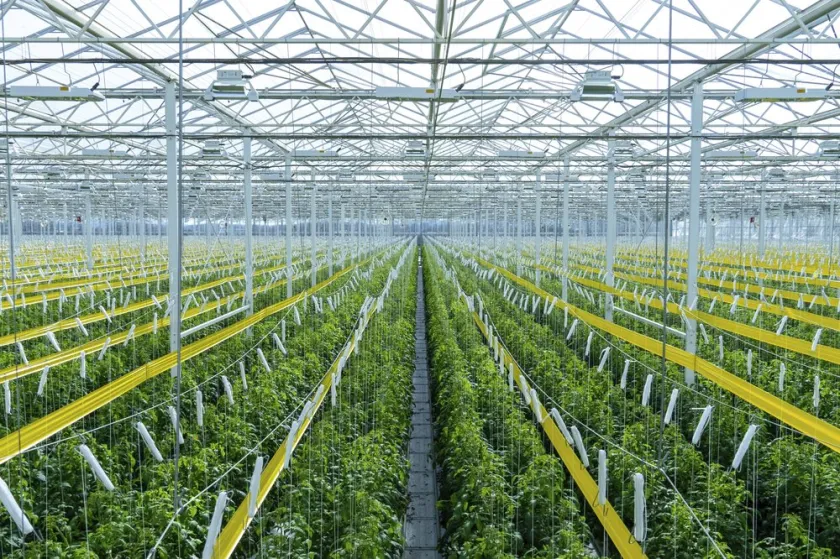Evan Lucas, an associate professor for NMU's new multidisciplinary indoor agriculture associate degree program, contributed to an Associated Press story on the burgeoning indoor farming industry. Lucas said the industry is getting a boost from high-tech growing methods developed for cannabis and declining costs of LED lighting.
Greenhouses have morphed into large-scale facilities as consumers increasingly seek out sustainably produced food. The AP story profiles AppHarvest, a company backed by Martha Stewart, as one example of the many players in the quickly expanding indoor farming market. Based in Kentucky, AppHarvest recently began shipping beefsteak tomatoes to Kroger, Walmart, Publix and other grocers.
NMU launched its indoor agriculture program this past fall. It is designed to prepare students for careers in medicinal plant and agricultural food production, as well as the indoor growing system industry. It also empowers them to grow plants year-round in northern climates, addressing potential food insecurity issues.
“This is the first program we know of that focuses equally on both plant growth and the indoor growing environment,” said Lucas, who teaches in NMU's Technology and Occupational Sciences Department, in a previous press release. He co-authored the proposal with Biology Professor Donna Becker and SELPS instructor and Seaborg Center STEM consultant Kim Smith Kolasa.
“We met with several cannabis industry representatives, who indicated they would hire every grad we put out,” Kolasa said. “They say our curriculum is spot-on and our students will be highly employable with varied skill sets related to growing operations that are integral to the cannabis industry. With a cross-disciplinary approach, there are lots of available jobs. This program is very hands-on and applicable to all indoor growing scenarios.”
Through an exploration-based curriculum, students learn about associated growing and environmental infrastructure systems. These include hydroponics, aquaponics and aeroponics. They also delve into other aspects of indoor agriculture: space design and construction, facility maintenance, climate-control systems, plant biology, chemical and nutritional makeup of plants, and basic business and accounting practices.
Becker said the decision to take a collaborative approach was reinforced at an American Society of Plant Biologists international conference, where experts urged students to gain this type of training to more effectively address food security issues.
“There's a surge of interest in this with cannabis legalization, but also from the perspective of how indoor growing can help to feed the world population,” Becker said. “We think there's huge potential for students coming out of this who might want to pursue a career in the agriculture industry. Tumultuous weather patterns caused by climate change and the increasing global population amplify the need to look beyond traditional outdoor agriculture for more efficient and sustainable farming options.”
The new associate degree complements and ladders into existing bachelor's degrees such as medicinal plant chemistry, botany and business.
“The future plan is to add a bachelor's degree in indoor agriculture,” Lucas said. “That degree would include more research on efficiency of plant growth within different settings, culinary collaboration, business and property development, and additional plant growth courses focusing on both production and business.
For more information on the program, visit https://www.nmu.edu/tos/indoor-agriculture.

